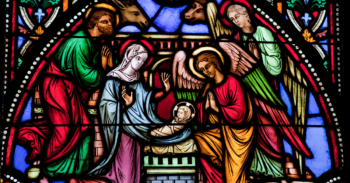
Peers from across the House of Lords challenged the UK Government today over discriminatory admissions policies in faith schools. Liberal Democrat peer Baroness Burt, who is also Vice-Chair of the All-Party Parliamentary Humanist Group (APPHG), posed the question to the Government ‘what assessment they have made of the United Nations Committee on the Rights of the Child (UNCRC)’s recommendation that the United Kingdom should prevent the use of religion as a selection criterion for school admissions in England.’ Crossbench, Labour, and Liberal Democrat peers intervened supportively during the ensuing debate.
Humanists UK, which has long campaigned for fair school admissions for all children regardless of background, briefed peers ahead of the debate and was instrumental in prompting the policy call from the UNCRC, having given evidence to the Committee.
Discrimination on grounds of religion is unfortunately common in England’s faith schools: UK law currently permits schools with a religious character to select up to 100% of pupils on faith grounds. Not only is it grossly unfair to treat children differently according to the faith of their parents, but the practice perpetuates economic and social divides. Similar problems exist in Wales and Northern Ireland.
It leads to parents perversely exaggerating the extent of their religious observance in order to secure a place in a specific school, and children from non-religious backgrounds are often put to the very back of the queue for places. In 2020 the Office of the Schools Adjudicator acknowledged that a policy requiring ‘weekly’ worship could put families off applying.
Introducing the debate, Baroness Burt stated that 40% of faith schools, and 60% of Catholic schools, have been found to give priority to those of ‘any’ religion over those without a religion.
Baroness Whitaker of the Labour Party, a member of the APPHG, made reference to the situation in Oldham, where local parents are unable to get places at a good school in the town because they are either non-religious or are not of an Anglican background.
Baroness Meacher (Crossbench) highlighted that the UK is one of only four countries in the OECD to allow state-funded schools to religiously discriminate in their admissions policies. The others are Ireland, Israel, and Estonia. Ireland recently abolished such discrimination for Catholic primary schools. She challenged the Government to explain why the UK is an outlier in this respect.
APPHG member and Shadow Education Spokesperson Baroness Thornton cited research finding that the prevalence of children eligible for free school meals is less at faith schools compared with other state schools. This is evidence of the social division caused by faith schools.
Lord Storey spoke for the Liberal Democrat frontbench. He recalled his party’s time in Government during the Coalition years, when the 50% cap on faith-based admissions was introduced for Free Schools. He spoke of the importance of community cohesion and asked the Government whether in light of that it would be looking to set a 50% cap on those faith schools currently able to select 100% of their intake by faith background.
Responding for the Government, Baroness Barran stated that it thinks the current system works well. This response failed to acknowledge the many problems other speakers had highlighted.
Humanists UK Education Campaigns Manager Robert Cann said:
‘There’s no getting away from the fact that our discriminatory admissions system is simply not working, and indeed is grossly out of step with changing demographics. Most parents of school-age children in England are nowadays non-religious. We regularly hear from humanist parents who have been discriminated against – often because they can’t get into a good local school.
‘Furthermore the UK is an outlier – both within the OECD countries and now by being taken to task by the UN. So I’m pleased to see this important issue raised in Parliament today and am grateful to Baroness Burt for standing up for fairness. The Government’s response defending the status quo was no surprise – we will be writing to ministers to present evidence as to the harms of discriminatory admissions policies.’
Notes
For further comment or information, media should contact Humanists UK Director of Public Affairs and Policy Richy Thompson at press@humanists.uk or phone 020 7324 3072 or 020 3675 0959.
Watch the debate on Parliament TV.
Read more about our work on faith schools and religious selection.
Humanists UK is the national charity working on behalf of non-religious people. Powered by 110,000 members and supporters, we advance free thinking and promote humanism to create a tolerant society where rational thinking and kindness prevail. We provide ceremonies, pastoral care, education, and support services benefitting over a million people every year and our campaigns advance humanist thinking on ethical issues, human rights, and equal treatment for all.
